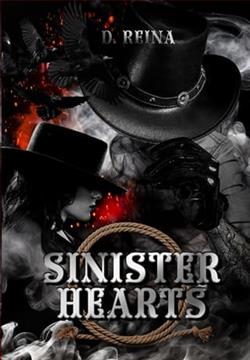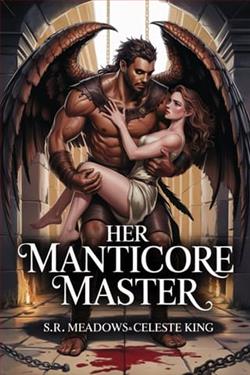Page 54 of The Someday Daughter
I don’t have it in me to talk him into what I know to be true, which is that they aren’t going to reconsider. One student gets this shadowing position out of an entire incoming class and it’s not me. They chose someone else. I don’t want it to be true, either, but it is.
“No,” I say. My voice cracks on the word and Puddles lifts her head, cocking it to one side like I’ve surprised her. In the silence before Ethan speaks she stands and pads toward me across the mattress.
“The office opens at nine o’clock tomorrow morning,” he says.Puddles sits beside me, leaning all her weight against my thigh. She’s so warm. “I’d call first thing, before they get—”
“Ethan.” He stops. “I didn’t get the job, okay?”
He’s quiet for an endless, endless minute. I don’t know what I wanted him to say when I picked up the phone but I should have known that it would be this. What did I expect? Ethan was never going to tell me it’s okay; in the world that we share, it’s not okay. I missed the mark and the only thing to do now is fix it.
“You’ll find something else,” he says finally. My nose burns with tears, and when I put my hand on Puddles’s back she leans into me even harder. “When I see you in Miami next week, we’ll find something else.”
“Okay,” I say. My voice is thin and absolutely pitiful. The thought of him seeing me like this feels impossible. The door opens and light floods in from the hallway, cut with Silas’s shadow. “I have to go.”
“Audrey,” Ethan starts, but I can’t do this—I can’t shoehorn something else into the hole where the ICU was, not yet. I can’t strategize this with Ethan, not while Silas stands ten feet away. Not while the waves are still this wild, threatening to pull me under.
“I have dinner,” I tell him, the lie coming so easily it scares me. “With my mom. I have to go, Ethan.”
When I end the call a sob hiccups out of me, painful, angry for being held in through that whole conversation. I feel worse than I did before we talked—just like I knew, somehow, that I would. When Silas sits on the bed across from me he sets something on the nightstand and turns on the lamp. He doesn’t touch me, not like before.
“Whatever he said,” Silas says quietly, “he’s wrong.”
I press my fingertips into my eyes, draw a steadying breath. When I push my tears across my cheeks and look at Silas he’s holding something out to me: a paper cup, watery green liquid steaming into the space between us. Thin string hanging from its edge with aPepperminttea tag.
“GG would be horrified that I’m giving you this knockoff version,” he says. “But it’s all they have here.”
“Thank you,” I whisper, and when I take it from him my hands shake. Silas reaches to rub Puddles’s head, and the edge of his palm brushes my leg.
“What are you thinking?” he finally asks, eyes coming up to mine. His hair’s like it was that very first night in Los Angeles: pulled back, a few pieces loose around his face. I remember thinking he looked so wild, then. So unknowable to me, like we didn’t and could never have anything to do with each other.It’s just a summer, my dad told me when I called him from San Francisco. But here we are.
I take a sip of the tea and it’s so hot it dislodges something inside me. “What do I do now?”
He pulls his hand back into his lap, draws a breath. “Can we try something?”
I think of the tree house, his angry eyes in the dark. I nod.
Silas says, “Come out with us tonight.”
36
“A honky-tonk,” I repeat. I’m sitting on the toilet in Cleo’s hotel bathroom, some kind of frozen eye mask elastic’d around my head. I can barely see her through its eye holes.
“Yes, Audrey.” She’s leaning over the sink, gluing a sparkly blue set of eyelashes in place. When I agreed to go out with the interns I didn’t really know what I was signing up for; when Silas dropped me off at Cleo’s door she took a long look at me and said, “Yep, I’ve got this.”
And now, the ice mask. I don’t ask what it’s for because I know it’s to run interference on the red, puffy catastrophe of my face. There’s a black wrap dress set out on the bed for me, Cleo’s. There’s the news that we are, apparently, going to a honky-tonk.
“I didn’t know that was a real thing,” I say. “I thought it was, like, a joke term.”
Cleo glances at me. She hasn’t once asked what’s wrong or tried to hug me or given me a lingering sympathetic look. She acts like she always does—like I’m irritating her and she’s on the edge of her patience. It feels like a gift.
“You thought ‘honky-tonk’ was a joke term?”
“It’s too corny to be true.”
She sighs, turning back to the mirror. “You know, Audrey, shitting on universally beloved things doesn’t make you cooler than other people. It just hurts their feelings.”
I blink. “Are honky-tonks universally beloved?”
“Yeah,” Cleo says, lowering back onto her heels from where she’s been leaning into the mirror. “Like gas station candy and Disney World and all the other basic shit refined people pretend they’re too good for.”















